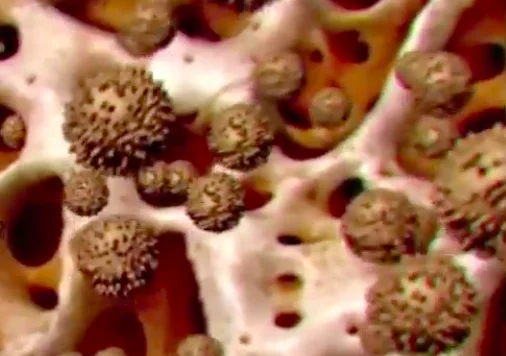
What are the Five Warning Signs of Prostate Cancer
Cancer is something we all must deal with, unfortunately. Whether it is a loved one, a spouse, or even ourselves, cancer can strike and we must take notice and start to do something about it with treatments etc. We at Z Urology deal with a specific type of cancer quite often. That is prostate cancer, and it is actually quite common.
What is Prostate Cancer?
Prostate cancer affects the prostate glands of men. Prostate cancer is the second-leading cause of cancer deaths for men in the United States.
The prostate is a small organ that lies below the urinary bladder and in front of the rectum (part of the large intestine). In men, it is normal for the size of the prostate to increase with age. In younger men, it is about the size of a walnut. The prostate makes a milky fluid, which is a part of semen. This fluid feeds the sperm.
There are two types of growths in the prostate:
- Benign growths: Non-cancerous growths and rarely a threat to life like benign prostatic hyperplasia.
- Malignant growths: These are cancerous growths that can be life-threatening.
Prostate cancer starts in the prostate gland and may spread to other organs.
What Causes Prostate Cancer?
The exact cause of prostate cancer is primarily unknown. One in three men older than 50 has some cancer cells in the prostate. Luckily, eight out of ten tumors are found to be small and harmless after biopsy. Although the reason for prostate cancer is unknown, there are many risk factors that increase the risk of prostate cancer:
- Lack of exercise
- Obesity
- Over 55 years of age (peak age 65-74)
- Ethnicity: More common in African Americans as compared to Caucasians
- Genetic/family history
- High fat, unhealthy diet
- Cigarette smoking
- Alcohol intake
- Hormonal causes
What are the Five Warning Signs of Prostate Cancer?
Prostate cancer rarely produces symptoms in its early stages. However, few signs can help in detecting prostate cancer. Five potential warning signs of prostate cancer are:
- Bone pain (due to spreading)
- Symptoms from compression of the spine
- Painful urination or ejaculation
- Sudden erectile dysfunction (trouble in getting an erection)
- Blood in urine or semen
What are Other Symptoms of Prostate Cancer?
Other symptoms of prostate cancer can be:
- Weight loss
- Frequent urination (particularly at night)
- Loss of bladder control
- Weak urine flow
- Dull pain in the lower pelvic area
- Pain in the lower back, hips, or thighs
- Loss of appetite
- Anemia
- Pain and edema in the legs and feet
- Neurologic deficit (an altered function of a body area)
- Loss of bowel control
How is Prostate Cancer Diagnosed?
Screening asymptomatic men helps identify early prostate cancer.
Screening is recommended in men:
- Who are between 55 and 69 years of age
- Who are African American
- Who have a family history of prostate cancer
Screening methods include:
- A digital rectal examination that helps to find prostate problems
- Prostate-specific antigen (PSA): Increased PSA levels in the blood can sometimes indicate prostate cancer.
- Definite diagnosis is based on the biopsy of the prostate tissue.
- Magnetic resonance imaging studies and imaging tests may be used to assess the distant spread (metastasis).
How is Prostate Cancer Treated?
The treatment plan for prostate cancer depends on the following factors:
- Age and health
- Risk category
- Life expectancy
- The stage and grade of cancer
Treatment choices for prostate cancer involve:
- Surveillance
- Active surveillance: Monitoring cancer closely by carrying out PSA and DRE examination
-
- Watchful waiting: Relies mainly on the changing symptoms in men
- Localized therapy
- Surgery involves the removal of the prostate gland (prostatectomy)
- Radiation therapy
- Cryotherapy is the use of very cold temperatures to freeze and kill the cancerous cells
- Focal therapy
- Drug therapies that spread throughout the body to destroy cancer cells involve:
- Hormonal therapy
- Chemotherapy
- Immunotherapy
If you feel you are in need of a urologist in South Florida to aid in helping deal with prostate cancer issues this article highlighted, then contact Z Urology for a group that is dedicated to delivering world-class expertise in urology, along with an unwavering commitment to their patients. The three locations to choose from are located in Fort Lauderdale, Coral Springs, and Pompano Beach.
You can go to the website directly and set up an appointment or you can call 954-714-8200. Either way, you contact, you will be setting up to see the leading urologist office in all of South Florida. With an extremely talented and professional staff of doctors and more, you are in truly good hands with the doctors and nurses at Z Urology. Z Urology is your leader in urological care. Go ahead and call now!




Recent Comments